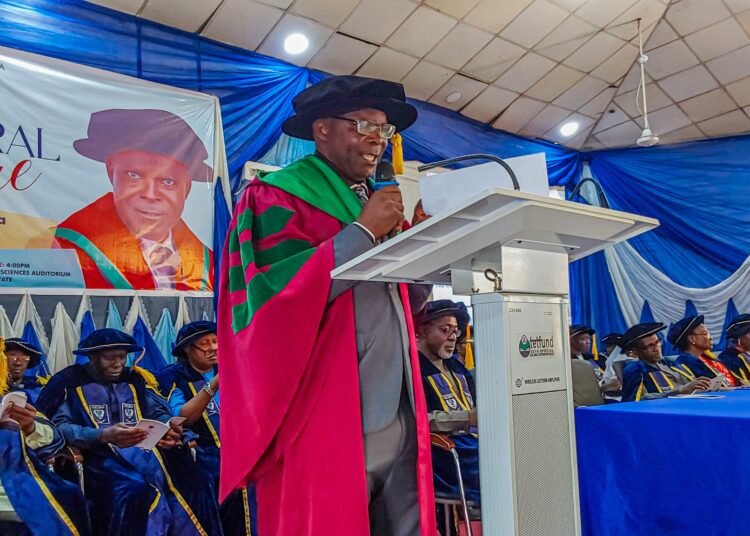A professor of monetary economics, Prof. Gbenga Moses Niyi Omofa, has said Nigeria needs a strong institutional mechanism to align its fiscal and monetary policies and improve its economy’s performance.
Omofa, therefore, recommended the establishment of a National Economic Coordinating Council (NECC) in accordance with the country’s current economic realities.
Omofa, who stated this while delivering the 28th Inaugural Lecture of the Federal University Lokoja (FUL), stressed the need for institutional harmonisation among other solutions.
The lecture, “Financial Sector Development and Macroeconomic Performance in Nigeria: An Uneasy Marriage Between the Monetarists and the Fiscalists,” aimed to bridge the existing gap between monetary and fiscal priorities for a better economy.
The professor of monetary Economics hinted that addressing the persistent disjunctions between Nigeria’s monetary and fiscal policy frameworks requires a shift from ideological rigidity to pragmatic synthesis.
He said that at the heart of Nigeria’s policy incoherence is the absence of a sustained platform for strategic coordination between key macroeconomic institutions.
According to him, financial sector development cannot meaningfully contribute to macroeconomic performance unless it is grounded in a coherent policy regime that harmonises inflation control with inclusive, productivity-driven growth.
Omofa observed that the Central Bank of Nigeria (CBN), the Ministry of Finance, the Budget Office, and other economic planning agencies often operate in silos, with limited consultation or alignment.
To attain a fruitful union the renowned economist called for an end to policy silos as he underscored the imperative need to recognize and internalize the interconnectedness of various institutions and policy domains.
It is against this backdrop that he called for the establishment of the National Economic Coordinating Council (NECC), which he said would be tasked with developing joint macroeconomic frameworks and forecasts, reviewing trade-offs between inflation control, employment, and growth.
He said that aligning monetary policies and financial sector development with the needs of productive sectors such as agriculture, manufacturing, and services would ensure that financial resources collectively contribute to sustainable economic growth and job creation.
Speaking earlier in his welcome remarks, the vice chancellor of the university, Prof. Olayemi Akinwumi, a professor of History, acknowledged Prof. Omofa’s contributions and thanked him for choosing to share his rich research journey with the institution. He described the topic of the lecture as very timely.











